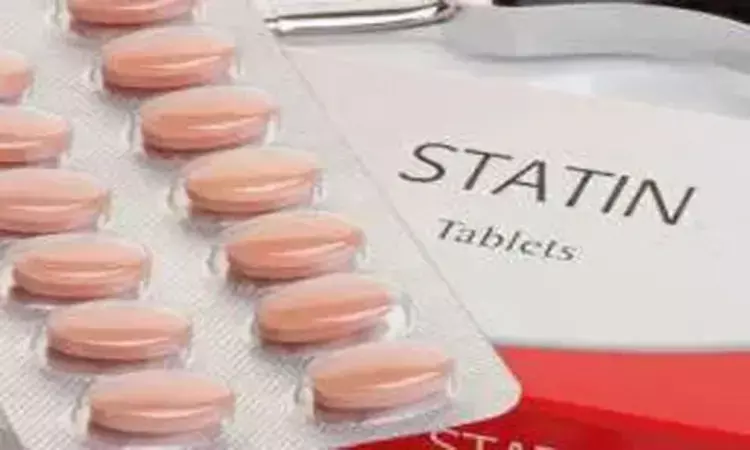- Home
- Medical news & Guidelines
- Anesthesiology
- Cardiology and CTVS
- Critical Care
- Dentistry
- Dermatology
- Diabetes and Endocrinology
- ENT
- Gastroenterology
- Medicine
- Nephrology
- Neurology
- Obstretics-Gynaecology
- Oncology
- Ophthalmology
- Orthopaedics
- Pediatrics-Neonatology
- Psychiatry
- Pulmonology
- Radiology
- Surgery
- Urology
- Laboratory Medicine
- Diet
- Nursing
- Paramedical
- Physiotherapy
- Health news
- Fact Check
- Bone Health Fact Check
- Brain Health Fact Check
- Cancer Related Fact Check
- Child Care Fact Check
- Dental and oral health fact check
- Diabetes and metabolic health fact check
- Diet and Nutrition Fact Check
- Eye and ENT Care Fact Check
- Fitness fact check
- Gut health fact check
- Heart health fact check
- Kidney health fact check
- Medical education fact check
- Men's health fact check
- Respiratory fact check
- Skin and hair care fact check
- Vaccine and Immunization fact check
- Women's health fact check
- AYUSH
- State News
- Andaman and Nicobar Islands
- Andhra Pradesh
- Arunachal Pradesh
- Assam
- Bihar
- Chandigarh
- Chattisgarh
- Dadra and Nagar Haveli
- Daman and Diu
- Delhi
- Goa
- Gujarat
- Haryana
- Himachal Pradesh
- Jammu & Kashmir
- Jharkhand
- Karnataka
- Kerala
- Ladakh
- Lakshadweep
- Madhya Pradesh
- Maharashtra
- Manipur
- Meghalaya
- Mizoram
- Nagaland
- Odisha
- Puducherry
- Punjab
- Rajasthan
- Sikkim
- Tamil Nadu
- Telangana
- Tripura
- Uttar Pradesh
- Uttrakhand
- West Bengal
- Medical Education
- Industry
PAD patients less likely to take statins despite ASCVD risk

USA: PD patients are less likely to take statins than those with CHD or cerebrovascular disease despite having a high risk for ASCVD events, suggests a recent study in the Journal of the American College of Cardiology. According to the study, ASCVD risk-reduction interventions including statin therapy are warranted in patients with PAD.
Peripheral artery disease (PAD) is associated with an increased risk for atherosclerotic cardiovascular disease (ASCVD) events. Lisandro D. Colantonio, Department of Epidemiology, the University of Alabama at Birmingham, Birmingham, Alabama, and colleagues compared the risk for ASCVD events and the use of statins among patients with PAD versus those with coronary heart disease (CHD) or cerebrovascular disease.
The researchers conducted a retrospective cohort study of adults age≥19 years. 943,232 patients included had a commercial or Medicare health insurance with a history of PAD, CHD, or cerebrovascular disease on December 31, 2014. Patients were followed for ASCVD events comprising CHD, cerebrovascular disease, and PAD events until December 31, 2017.
Key findings of the study include:
- The age-standardized ASCVD event rate per 1,000 person-years for those with a history of 1, 2, and 3 conditions including PAD, CHD, and cerebrovascular disease was 40.8, 68.9, and 119.5, respectively.
- The ASCVD event rate among patients with PAD only, CHD only, and cerebrovascular disease only was 34.7, 42.2, and 38.9, respectively.
- Among patients with PAD and CHD, with PAD and cerebrovascular disease, and with CHD and cerebrovascular disease, the ASCVD event rate was 72.8, 63.9, and 67.9, respectively.
- Statin use was lower in patients with PAD only (33.9%) versus those with cerebrovascular disease only (43.0%) or CHD only (51.7%).
"Despite having high risk for ASCVD events, patients with PAD were less likely to be taking a statin versus those with CHD or cerebrovascular disease. ASCVD risk-reduction interventions including statin therapy in patients with PAD are warranted," concluded the authors.
The study, "Atherosclerotic Risk and Statin Use Among Patients With Peripheral Artery Disease," is published in the Journal of the American College of Cardiology.
DOI: https://doi.org/10.1016/j.jacc.2020.05.048
Dr Kamal Kant Kohli-MBBS, DTCD- a chest specialist with more than 30 years of practice and a flair for writing clinical articles, Dr Kamal Kant Kohli joined Medical Dialogues as a Chief Editor of Medical News. Besides writing articles, as an editor, he proofreads and verifies all the medical content published on Medical Dialogues including those coming from journals, studies,medical conferences,guidelines etc. Email: drkohli@medicaldialogues.in. Contact no. 011-43720751


